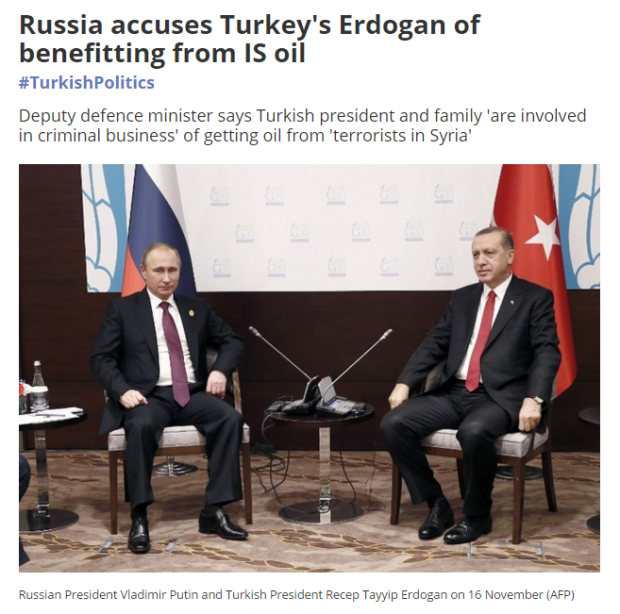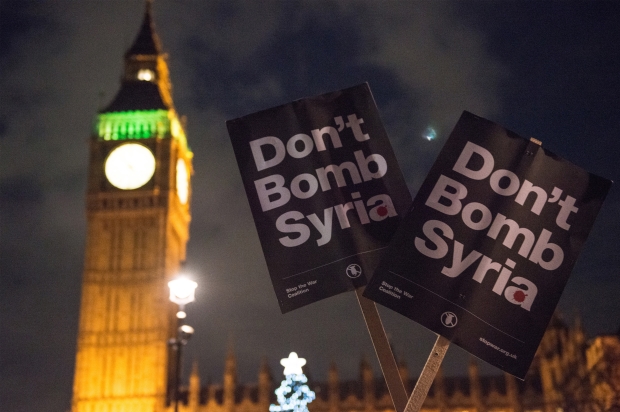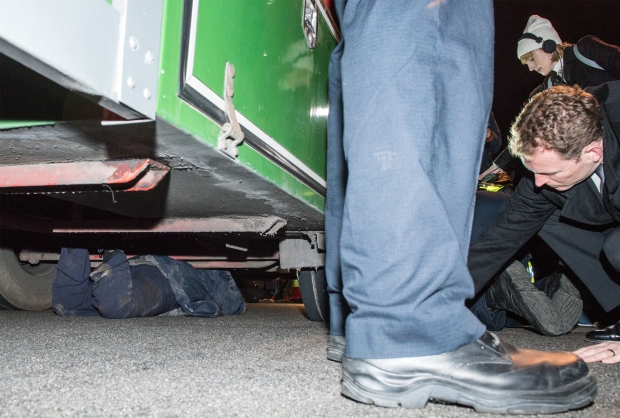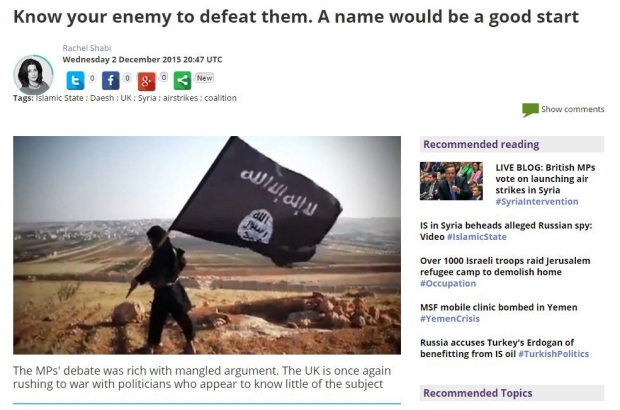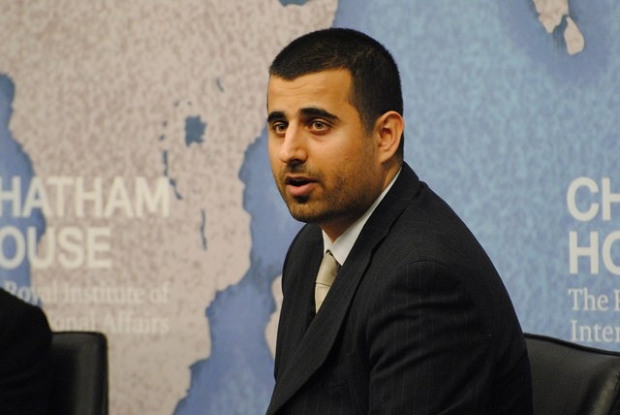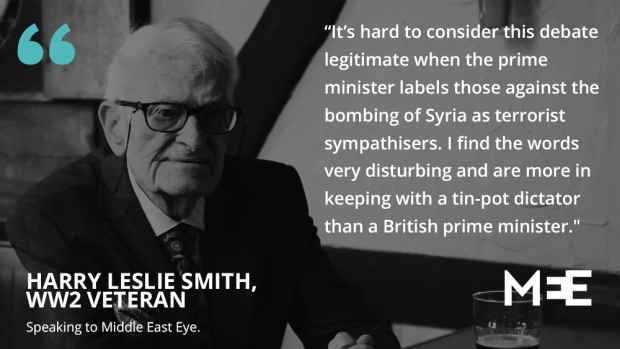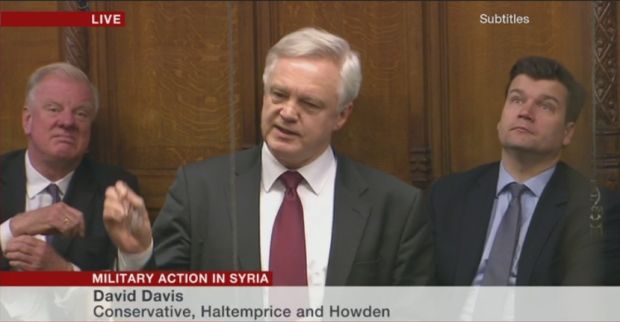LIVE BLOG: British MPs vote on launching air strikes in Syria
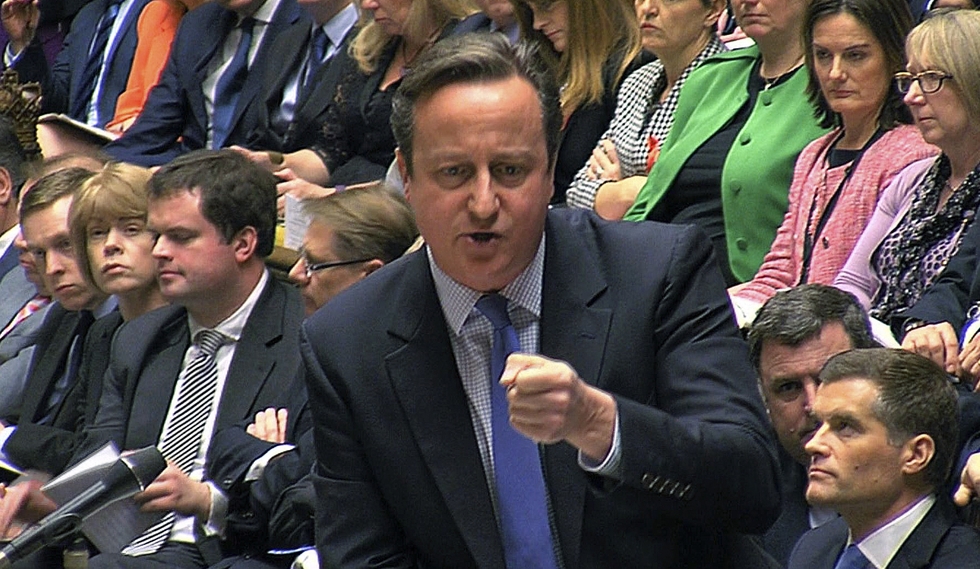
- Thousands of protesters marched on parliament Tuesday calling on MPs to vote against extending air strikes to Syria
- Commons looks set to vote in favour of airstrikes despite rebellions
- David Cameron criticised for branding opponents of airstrikes "terrorist sympathisers".
- YouGov polls show only 48 percent of UK public back airstrikes
Photo: AFP
Live Updates
'Evil death cult' appears to have cropped up quite a lot in the MPs' speeches tonight. It's popping up on Twitter as a hashtag already.
While not directly linked to the debate today, the issue of cooperation over Syria hangs heavy over the heads of those conducting bombing. Relations between Turkey and Russia have worsened since Turkey shot down a Russian plane last month it said was violating its territory.
The Russians have since hit back at Turkey and its leadership, today claiming that the family of Turkish president, Recep Tayyip Erdogan, was directly involved in buying oil from "terrorists in Syria" - read IS.
Here's MEE's story on the latest: goo.gl/DJRV7N
And here's an extraordinary Twitter post on the subject from the Russian Embassy in the UK.
Protesters are out in force outside Parliament tonight, with one crawling under a lorry and refusing to move.
Photos from AFP.
The speech by Margaret Beckett has been held up by many as one of the day's finest. Beckett, the former deputy Labour leader, says that the attacks in Paris have moved her to support the Commons motion.
You can watch her full speech here, from Youtube:
If you have a spare hour (the Commons vote doesn't happen until after 10pm), the Jihadology website has produced a podcast of an interview with Charles Lister, a visiting fellow of the Brookings Institute in Doha, who has researched the rise of IS and other groups in the Syrian war.
It's a good, in-depth listen - and will help with anyone wondering if there is indeed a 70,000-strong army of 'moderate' fighters in Syria, as stated by the British prime minister in his case for war.
http://jihadology.net/2015/11/23/jihadology-podcast-the-syrian-jihad-a-history/
Rachel Shabi has written for Middle East Eye on the level of debate in the Commons today. You can read it here.
All this talk of heroism and standing with the international community and Britain’s place in the world – it all seemed as though consideration for the Syrian people, as well as the Iraqis and the wider Middle East, didn’t register nearly enough in this historic debate.
Less than forty-five minutes to go.
The question remains over how many Labour MPs support the motion. Early estimates said 100 but that figure later came down to 40.
If the latter figure is nearer the mark it could be very close for Cameron.
The Commons uses a quaint, some say archaic, voting system for motions before the House.
MPs form queues and walk through either one of two corridors to show their support (the ayes), or opposition (the noes).
The counters then relay their tallies to the chair, who calls the vote. Politics.co.uk has a fuller explanation here.
The debate appears to have gone off the boil, so here are a selection of quotes from earlier in the day:
David Cameron, British PM: "This is not 2003. We must not use past mistakes as an excuse for indifference or inaction. Let's be clear: Inaction does not amount to a strategy for our security or for the Syrian people but inaction is a choice. I believe it's the wrong choice. The question before the House today is how we keep the British people safe from the threat posed by Isil. This is not about whether we want to fight terrorism, it's about how best we do that.
"The question is this: do we work with our allies to degrade and destroy this threat and do we go after these terrorists in their heartlands, from where they are plotting to kill British people. Or do we sit back and wait for them to attack us."
Jeremy Corbyn, Labour leader: "It is critically important that we are honest with the British people about the potential consequences of the action the Prime Minister is proposing. The spectre of Iraq, Afghanistan and Libya .... looms over this debate. To oppose another reckless and half-baked intervention isn't pacifism. It's hard-headed common sense.
"The logic of an extended air campaign is in fact mission creep and western boots on the ground, whatever the Prime Minister may say now about keeping British combat troops out of the way, are a real possibility."
Alan Johnson, Labour former home secretary: "I find this decision as difficult as anyone to make, I wish I had frankly the self-righteous certitude of the finger-jabbing representatives of our new and kinder type of politics, who will no doubt soon be contacting those of us who support this motion tonight, but I believe that Isil, Daesh, has to be confronted and destroyed if we are to properly defend our country and our way of life and I believe that this motion provides the best way to achieve this objective."
Julian Lewis, Tory chairman of the Commons defence select committee: "Instead of having dodgy dossiers, we now have bogus battalions of moderate fighters."
Angus Robertson, SNP leader in Westminster: "The point is, there is bombing currently under way in Syria and to pretend that what is being proposed while not taking that into account is highly misleading."
Crispin Blunt, chairman of the foreign affairs select committee: "To my mind, Isil is such a clear and present danger to the civilised world that if all necessary means are endorsed by the security council then so should this House." -
Tim Farron, Liberal Democrat leader: "We are absolutely under the spectre of a shocking, illegal and a counter-productive war in Iraq and that's a lesson from history we must learn from. The danger is today that for too many people we'll be learning the wrong lessons from history if we choose not to stand with those refugees, not to stand as part of the international community of nations."
Rainham Rehman Chishti, Conservative MP: "This barbaric terrorist group is not Islamic nor is it a state and Daesh is a better term for it. I hope that media organisations will now follow the Government's lead and also adopt the term."
Meanwhile, and if you have the time, David Cameron has put his entire speech on Facebook. You can read it here.
British MPs late on Wednesday voted to extend military action against IS into Syria. In the final vote, 397 MPs voted in favour and 223 voted no.
Parliament has thus approved Prime Minister David Cameron's call to bomb IS not only in Iraq, but in Syria as well.
A senior UK government source told BBC that RAF air strikes on IS in Syria could begin "within hours".
Hayder al-Khoei, an associate fellow at Chatham House, said that airstrikes have been highly effective in Iraq and that it makes sense for the UK to join in with coalition efforts in Syria.
"Airstrikes were crucial in saving the Kurdish regional capital Erbil. Airstrikes played a very key if not decisive role in the liberation of Tikrit, in the liberation of Sinjar, in the liberation of Amerli, so several Iraqi cities since last summer have been liberated by both the Kurdish and Iraqi government forces, but airstrikes is not going to dislodge them from the big cities they control. Airstrikes are not going to be effective as these are large urban populated areas, there are going to be many civilian casualties if airstrikes are conducted against them.”
"But when IS are on the move, they're trying to move in the open, to take the territory, airstrikes can be very effective.
"Airstrikes didn’t stop IS taking the provincial city of Ramadi, which is a crucial capital, strategic, it stands in between Iraq’s international highway. With the lack of ground forces, adverse weather conditions can severely impact your military response and IS took the city of Ramadi despite there being dozens of sorties flying overhead.
"In Syria, airstrikes play a very crucial role in the liberation of Kobane. IS tried to throw everything they could at it and the US and the Kurds dealt them a very serious blow, a blow to their morale, blow to their manpower and they couldn’t take the city. Since then the Kurds have been expanding and taking back control from IS.
"I think we have to recognise that this was a terrorist group called the Islamic State of Iraq and Syria. It just doesn’t make sense from a strategic perspective to hit them in Syria and not hit them in Iraq or to hit them in Iraq and not hit them in Syria."
World War II veteran Harry Leslie Smith has told Middle East Eye that the UK should not bomb Syria, as he fears we are headed for the beginning of the third World War.
The 92-year-old warned that we are headed for a bloodbath and the UK can’t have a proper debate on the decision to bomb Syria because the prime minister calls his opponents “terrorist sympathisers”.
Speaking to Middle East Eye by phone from his home in Canada, Smith said:
“It’s hard to consider this debate legitimate when the prime minister labels those against the bombing of Syria as terrorist sympathisers. I find the words very disturbing and are more in keeping with a tin-pot dictator than a British prime minister.
“The greatest fear I have [is that another world war is imminent] because I’ve seen these moments so many times in the past. And I feel this is the direction we are heading. It’s not a solution (war), it’s just an end for civilisation.
“We have to narrow it down to who are the main culprits in all this. I think we have to stop cosying up to Saudi Arabia because they have been spreading the ideology that underpins IS. We are at a dangerous crossroads in history – a vote for war will cause more harm than good.
“It may also plunge us into another bloodbath that will make the 30 years war (a 17th century religious war in Europe that killed 8 million people) seem like a family squabble.
“The last thing we need [in the UK] is a prime minister who only understands history as a glorious battleground. It’s always the people who take the brunt when a war is declared by a government. The young people are sacrificed to give pride to our rulers who can’t solve anything by debate.
“ISIS is symptom of how the Middle East has been turned into a toxic soup of profiteers and jihadists. I’m just stunned and can envisage the end of all this – the deaths of millions of people who don’t have a loud enough voice to stop our leaders who want to take us into another bloody mess."
British Prime Minister David Cameron said in today's debate that he will now refer to the Islamic State group by its Arabic acronym Daesh.
The decision has led to many MPs calling the group Daesh with a variety of pronunciations.
Middle East Eye journalist Linah Alsaafin has recorded the correct way to pronounce Daesh, to help English speakers.
Conservative MP David Davis, who is opposing the government’s motion, is speaking about how nearly all MPs agree with 90 percent of the proposal to tackle IS.
He said that the “contentious” part of the plan is the bombing part.
“We should face some facts. There have been 10,000 sorties against IS hitting 16,000 targets. The avowed aim? Degrade ISIS. The outcome? Recruitment for IS has doubled from 15,000 to 30,000.
“From that point of view it [the bombing] is not achieving what we intended. Arguably it is achieving the opposite.”
Davis concluded that he believes it is highly unlikely RAF bombers will make “any difference whatsoever” in the fight against IS.
Sky News journalist Faisal Islam has reported that as many as 50 Labour MPs will back the government in bombing Syria.
The Guardian reported earlier that at most 32 Labour MPs would vote for the motion.
Conservative MP John Baron is talking about the “mythical” 70,000 ground troops Cameron says are on the ground ready to fight IS.
“Everybody is having trouble identifying the ground forces and who should supply them,” he said.
Baron said he has recently visited Tehran, Abu Dhabi, and other regional capitals to discuss the Syrian civil war.
He said that officials in the region kept telling him there are “very few moderates remaining in Syria”.
“Even if you believe the 70,000 figure, what the strategy doesn’t address … is what is stopping these moderates … splintering into a 100 or 1000 militias as we saw in Libya? We ignore the lessons of Libya at our cost.”
Baron confirms that he will oppose the government motion.


